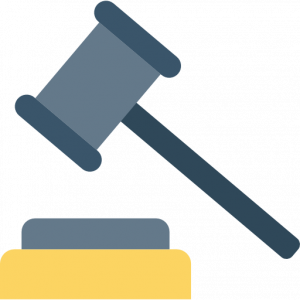Below is just a small sampling of ways in which you can get your students involved with SAR & HRC’s work. You can also find some simple suggestions of what assignments could look like and how they’d be graded here. None of these suggestions require a re-writing of your course. These are a small sampling of ‘light touch’ options for getting involved. In all cases, you will be supported by UBC’s SAR & HRC’s team or SAR themselves. No need to become an Academic Freedom or Human Rights expert overnight! Academic Freedom is important in all disciplines and we are happy to support interested faculty in implementing any of the suggested assignments below or working with them on new ideas.

Short Film, Podcast or Infographic:
- In this assignment, students will be asked to convey the details of a case study denoting a threat to Academic Freedom drawn from the SAR Annual Free to Think Report in a creative format.
- This could be integrated into courses in a number of ways: the scholar might be from your discipline, the scholar or event might relate to a region/case you you focusing on in your course, or the threat might be related to other themes from your course.
- Theme ideas: power, legal rights, conservation, etc.
Quantitative & Qualitative Data:
- In this assignment, students will be looking at qualitative or quantitative data from the SAR Annual Freedom to Think Report.
- This would suit a methods course or any course in which you are asking students to critically explore sets of data.
- By using this data, students will engage in an analysis of data that would be useful to the SAR network.

Themed Reflexive Writing:
- In this assignment, students will engage in a small act of advocacy on behalf of SAR (e.g. gathering signatures to help with SAR’s Scholars in Prison Project.
- To reflect on their work, students will complete a reflective writing assignment based on their actions that relate to their chosen course theme.
- Theme ideas: gender, power, inequality, activism, advocacy, human rights, conservation, environmentalism, law and society, etc.

Media Monitoring:
- In this assignment, students will engage in media monitoring (both traditional media or contemporary social media) to track information and keywords related to specific cases of threats against academic freedom.
- A media monitoring report will be submitted to SAR to help aid in their monitoring work
- Students may also engage in the creation of a StoryMap to visually map out the threats they have identified globally.
- To reflect on their work, students will complete a reflective writing assignment based on the media coverage they found in a manner that relates to your course.

Legal Analysis or Summaries:
- In this assignment, students will complete literature reviews or analyses of relevant laws in a specific region or country that is already prominent in your course that would be useful to SAR in their future legal advocacy
- Example questions:
- What is the state of domestic laws in Country X that might be useful for advocating against threats to academic freedom?
- Are there any historical legal precedents that could be used?

Biography or Biographical Sketch:
- In this assignment, students will be asked to write a biography or biographical sketch of a scholar at risk.
- The chosen scholar could be part of either an ongoing case or a historical case in the discipline of your course.
Raise Awareness:
- In this assignment, a chosen scholar at risk from your discipline will be showcased to students.
- In order to give back to SAR, students will work to raise awareness of the scholar’s cause and celebrate their scholarship by integrating their work into a pre-existing course through lectures, readings and reflections from students.

Guest Lecture:
- In this assignment, we will work with SAR to help identify and arrange for a scholar from your discipline to be able to guest lecture in your course.
- This small intervention is important as the work of these scholars has been interrupted and it is important to celebrate and shine light on their work.
- A small discussion of SAR’s work and the concept of academic freedom can easily be added to your course to frame this integration and a Q&A session for the guest lecturer. This discussion can be arranged either from a guest speaker from the UBC SAR Team or by using many of the online resources available to you)

Literature Reviews & Summaries:
- In this assignment, students will conduct literature reviews and summaries on a range of topics that would be useful to SAR from your disciplinary area of expertise.
- Research Ideas: psychological impact of wrongful imprisonment, research on labour market issues, effective marketing/social media campaigning, etc.

Translation of Documents & Media
- In this assignment, students will be asked to translate a variety of key SAR works, documents and media SAR from a range of languages into English in order to help with SAR’s advocacy and outreach.

